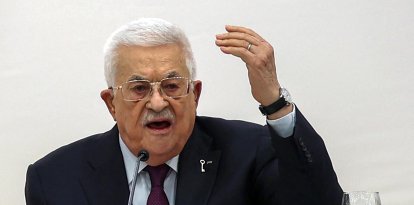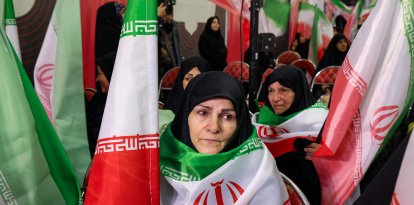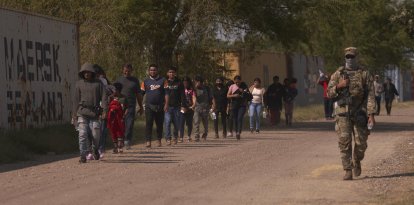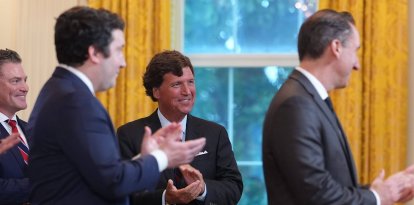How the United States can help Ecuador defeat narco-terrorism
The gangs attacking Ecuador work hand in hand with Mexican and Colombian cartels shipping criminals and drugs across our southern border.

A police officer stands guard during an operation in the Ciudad Victoria neighborhood of Guayaquil, Ecuador, on May 8, 2024. (Photo by Gerardo MENOSCAL / AFP)
Last week, a taxi and two motorcycles pulled up to a bar in the city of Chanduy, Ecuador. The bar’s patrons were there to celebrate a birthday; the newcomers had arrived for a different reason. By the time they left, five men and three women had been shot dead.
This tragedy is just the latest instance of a wave of gang violence that has struck the South American nation. Last year, that wave pushed annual homicides from about 4,400 to about 7,600. At the beginning of this year, the world watched in horror as gangsters stormed an Ecuadorian television station in the middle of a live broadcast. Since then, close to 2,000 more homicides have occurred.
The Ecuadorian government is doing everything in its power to stem the mayhem. President Daniel Noboa has declared two states of emergency since January, and a referendum in April granted him additional powers to deploy military troops to take on the gangs. However, Noboa need not stand alone; the United States and the international community more broadly can and should offer their support.
The reason for this is simple: Ecuador’s central location and size make its security and stability critical to the security and stability of the hemisphere as a whole. If Ecuador’s situation dramatically deteriorates, everyone in Latin America and the Caribbean will suffer the consequences. The impact will even be felt in the United States, because the gangs attacking Ecuador work hand in hand with Mexican and Colombian cartels shipping criminals and drugs across our southern border. The more powerful the former become, the more havoc the latter will be able to wreak on American society.
Thanks to the bipartisan U.S.-Ecuador Partnership Act of 2022, Congress has already established a plan to expand cooperation with Ecuador on issues of mutual interest, including the fight against crime. The next steps are to update the United States’ extradition treaty with Ecuador, appropriate more funds for International Narcotics Control and Law Enforcement to assist the South American nation, and require the U.S. Department of Defense to help rebuild the Ecuadorian military, which has deteriorated from years of cuts made by left-wing administrations. I am introducing new legislation to accomplish all three goals.
Meanwhile, I urge the U.S. Department of State to work with the Organization of American States under its Inter-American Democratic Charter to forge an international, hemisphere-wide response to Ecuador’s situation. Gang violence and narco-terrorism anywhere are a threat to democracy and the rule of law everywhere. We all have an interest in disrupting criminal networks in our region.
Finally, the Biden Administration must deal more firmly with the governments empowering Ecuador’s gangs, whether directly or indirectly. This means ceasing to appease Venezuela’s illegitimate narco-regime, which provides safe haven to the terrorist groups now expanding into Ecuador. It also means pressuring Colombian President Gustavo Petro, whose failed “Total Peace” plan has empowered terrorists and cocaine traffickers close to Ecuador’s northern border, for his own appeasement tactics.
All of this is straightforward in the end. We have much to lose from an Ecuador riven by killers and drug dealers. Conversely, we have much to gain from an Ecuador that remains safe, stable, and free from corruption and narco-trafficking. Doing what we can to secure the latter is just common-sense diplomacy.
























